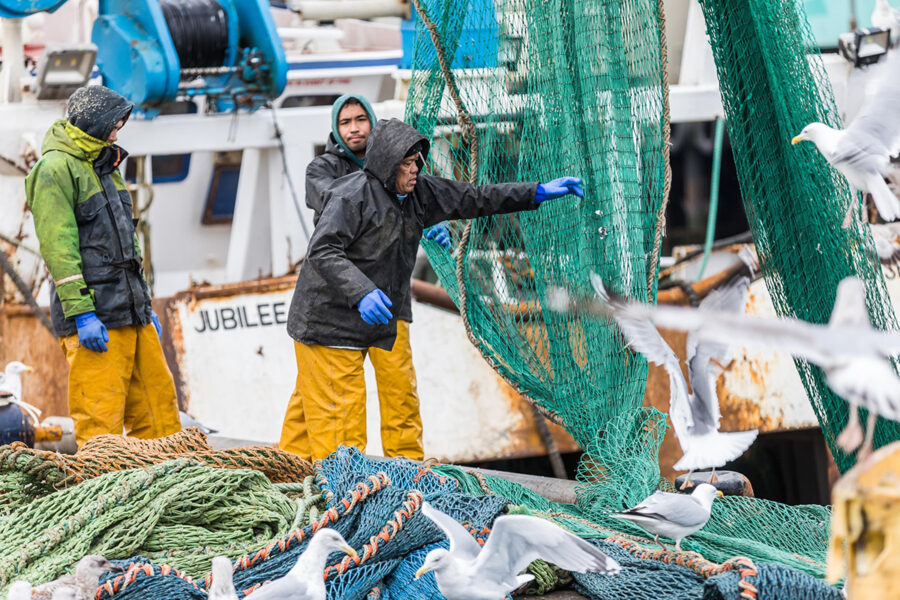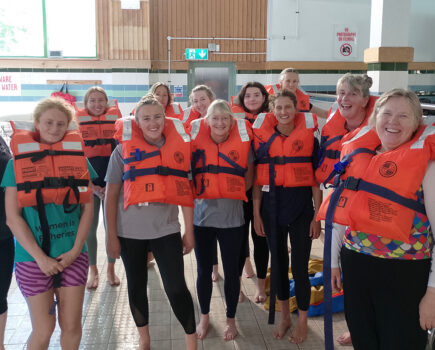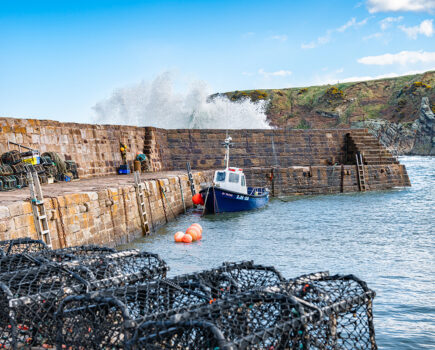Seafish has published a series of guides to help those in the industry employing non-UK nationals understand the Skilled Worker Visa process.
In collaboration with Darren Stevenson of law firm Wiggin LLP, it has created five guides outlining the steps that a business should take to become a sponsor – the first step in employing non- UK workers under the Skilled Worker Visa.
Anyone wishing to employ migrant workers in the seafood industry, either onshore or within 12nm of the shore, is likely to need to use a Skilled Worker Visa. This enables migrant workers to take up certain skilled jobs in the UK, including experienced deckhands, fish filleters and seafood processing line operatives.
The new guidance also provides information on the steps needed to meet obligations as a sponsor and employer.
Neil McAleese, head of industry workforce issues at Seafish, said: “We understand that navigating the Skilled Worker Visa is a daunting prospect for many businesses, so we are keen to make sure they have the advice they need in an easy-to-follow format.
“It is vitally important that businesses are aware and understand that recruiting under the Skilled Worker Visa creates obligations for them as an employer.
“There are strict penalties if these requirements are not met, and therefore we felt it was important that businesses were provided with guidance to help them understand the commitments that they are making as a sponsor of a skilled worker.”
Seafish research has shown that more than 50% of deckhands on UK fishing vessels come from outside the UK, as do around a third of processing sector workers, making it important for employers to understand the immigration rules.
With many businesses struggling to fill roles since the UK left the EU, Seafish research in March this year showed that 37% of fishing vessel owners in the UK had vacancies.
Harry Wick, chief executive of the Northern Ireland Fish Producers’ Association, has welcomed the publication of the guides. “These guides offer fishermen up and down the country a safe pathway through the minefield that is immigration law,” he said.
“To get this advice independently would have cost our members thousands in lawyers’ fees, so to have it in an accessible, easy to understand format that takes you through the process step by step, and is available for free, is incredibly helpful.
“This is immigration law broken down, demystified and laid out in a way that gives fishermen both the understanding and the tools required for them to help themselves.”
The guides can be downloaded from the Seafish website here.
Any questions about the guides can be emailed to: skilledworkervisa@seafish.co.uk
This story was taken from the latest issue of Fishing News. For more up-to-date and in-depth reports on the UK and Irish commercial fishing sector, subscribe to Fishing News here or buy the latest single issue for just £3.30 here.
Sign up to Fishing News’ FREE e-newsletter here.








